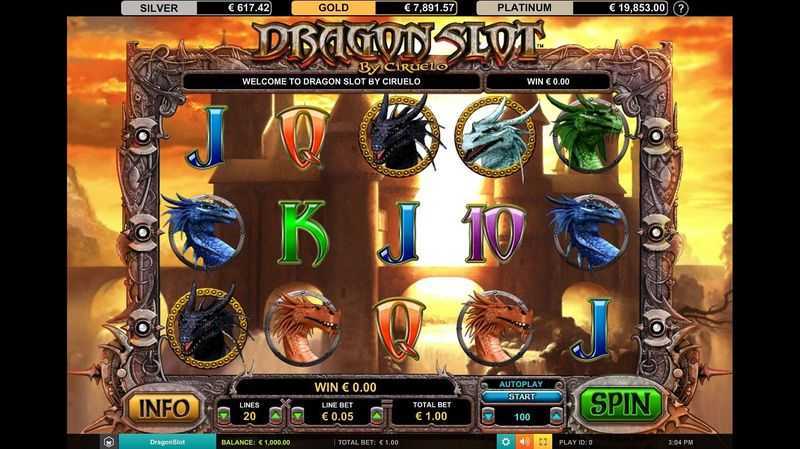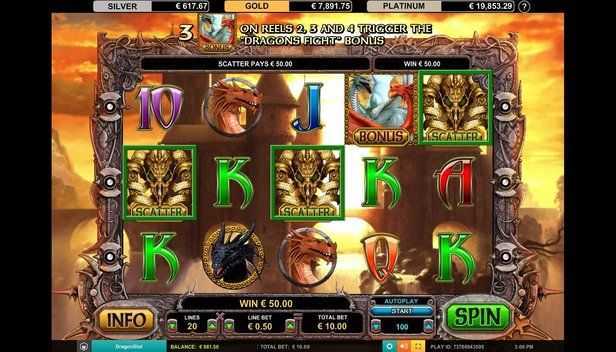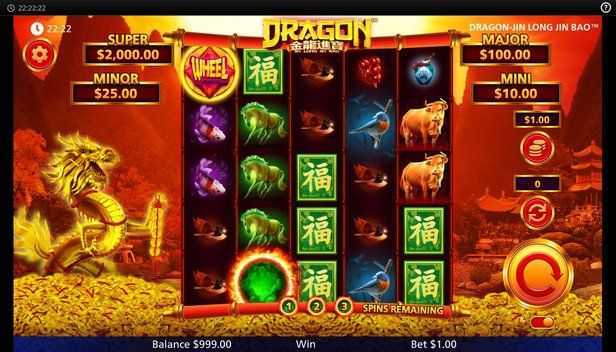🏢 Provider: Leander Games
📅 Released: 22.02.2016
🎯 RTP: 93,37%
⚡ Volatility: High
🧩 Paylines: 20

How to Play Dragon slot Slot for Real Money Online

1. RTP (Return to Player): 93.37%
This RTP indicates that, on average, a player can expect to receive 93.37 coins for every 100 coins wagered. The remaining 6.63 coins represent the house edge. While this RTP is relatively standard, it is less favorable compared to many modern slots, which often offer RTPs closer to 96% or higher.
2. Paylines: 20
With 20 paylines available, this slot allows for a decent number of winning combinations. However, compared to slots with higher numbers of paylines, it results in less frequent payouts. Each spin may feel less rewarding, particularly in a high volatility environment where wins might be sporadic and significant.
3. Max Bet Scenario:
When placing the maximum bet of 100 at a time, if the player hits the maximum win potential of 2500, they stand to gain:
Maximum win: 2,500 is a manageable yet modest payout relative to other high volatility slots, which commonly have win multipliers significantly higher than this.
4. Minimum Bet Scenario: 0.2
This option is ideal for players experimenting with different strategies or those looking to minimize their financial exposure. At the minimum bet, the potential win remains at the same multiplier
This provides a theoretical maximum win of 500 from the minimum wager scenario.
Simple Expected Return Calculation:
Assuming a player spins 1,000 times with a 1-coin bet (total wager: 1,000 coins), with the RTP of 93.37%:
This leads to an expected loss of 66.3 coins over the long term. It's important to note that actual results can vary significantly in practice due to the volatile nature of the game.
Risk Evaluation:
The high volatility classification means that players can expect larger swings in their bankroll. While there’s potential for substantial wins, there will also be periods with extended dry spells. Combined with the 20 paylines, the payoffs could be less frequent but more significant when they occur.



